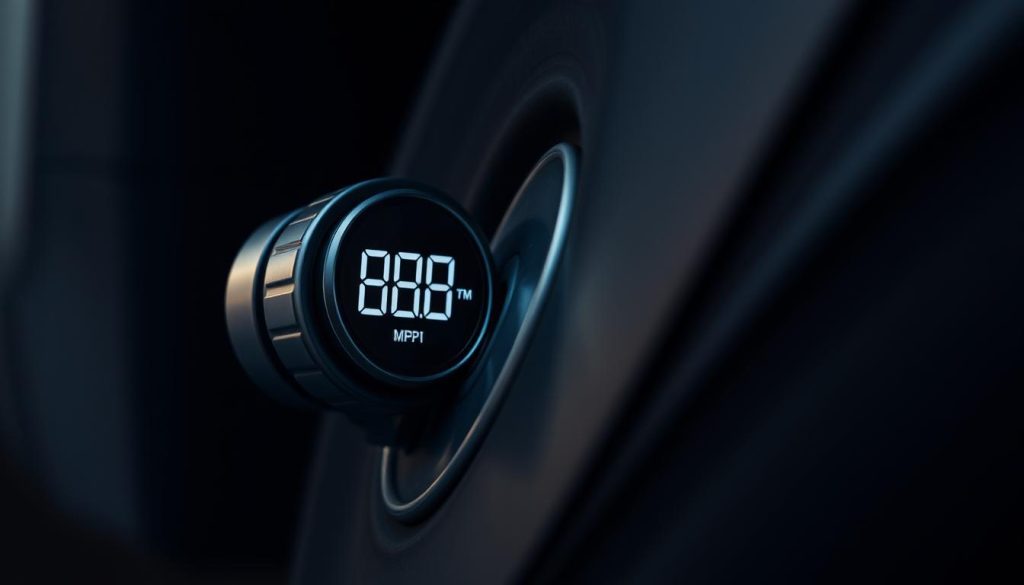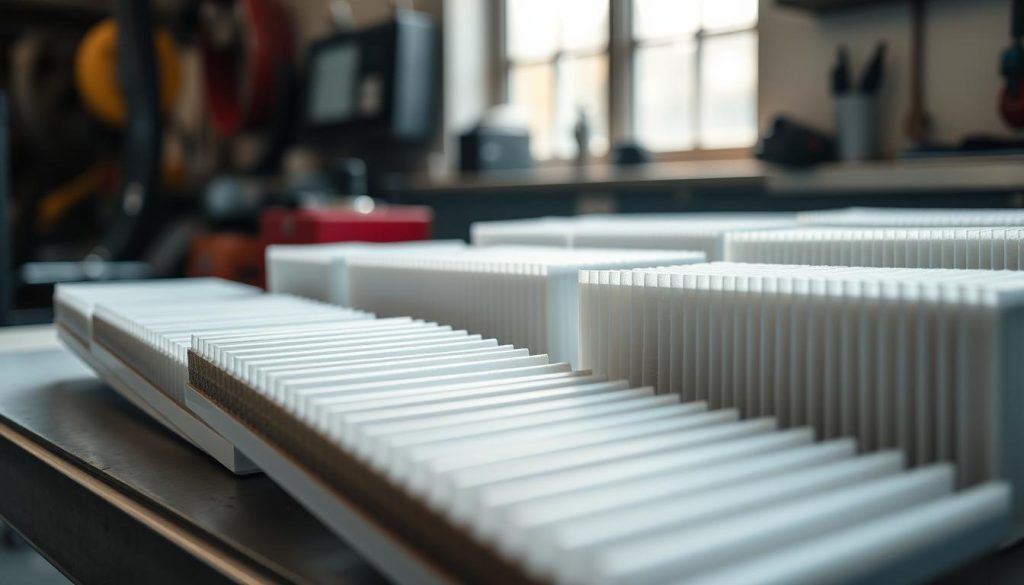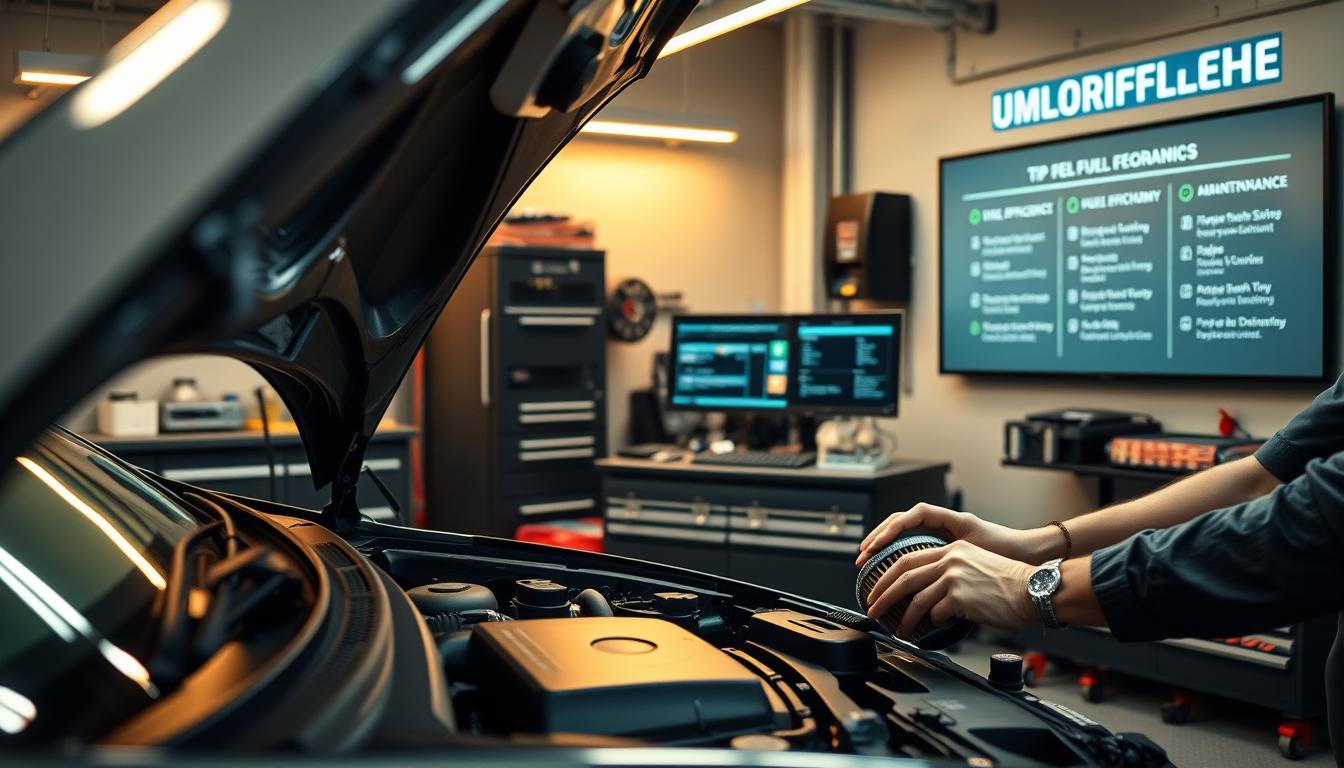Regular vehicle maintenance is key to better fuel economy. Keeping your car in good shape boosts fuel efficiency. It also cuts down on fuel costs and helps the environment.
Research shows drivers can up their fuel economy by about 10 percent with the right care and driving. A simple tune-up can make a big difference. At Heaven Automotive, we stress the value of regular upkeep for better performance and fuel use.
Key Takeaways
- Regular maintenance improves fuel economy.
- A tune-up can significantly enhance fuel efficiency.
- Proper vehicle care reduces fuel costs.
- Maintaining your vehicle contributes to a cleaner environment.
- Heaven Automotive is here to help you achieve better fuel economy.
The Importance of Regular Vehicle Maintenance
Keeping your vehicle in good shape can really help it use less fuel. Regular checks make sure your car runs well and uses less gas. This saves you money. Let’s look at how keeping up with maintenance boosts fuel efficiency.
The Impact of Tire Pressure on Fuel Efficiency
One easy way to save fuel is by keeping your tire pressure right. The right pressure can make your car go up to 3.3 percent farther on a tank. If your tires are too low, they work harder, using more gas. Always check your tire pressure monthly and before long drives.

Changing Engine Oil for Optimal Performance
Using the right motor oil can make your car go up to 2 percent farther. Oil keeps your engine’s parts moving smoothly. But, it gets old and loses its power over time. Changing your oil regularly keeps your engine running well, saving fuel.
Keeping Filters Clean and Replaced
A clean air filter is key for fuel efficiency. A dirty filter makes your engine use more gas. Check your air filter every 15,000 miles and change it when needed. A dirty fuel filter also hurts fuel efficiency by blocking fuel flow. Keeping these filters clean is vital for your car’s best performance.
Regular Checks and Their Benefits
Regular vehicle checks are key to better fuel economy. They help keep our vehicle running smoothly and efficiently. It’s important to check and maintain parts like fuel injectors, spark plugs, timing belts, and brakes.
Inspecting Fuel Injectors and Spark Plugs
Fuel injectors and spark plugs are essential for a good engine. Dirty or old spark plugs can hurt engine performance and fuel economy. Replacing them can make the engine work better.
Clean fuel injectors also help the engine run right. This means better fuel use. It’s smart to check these parts often and replace them when needed.
Benefits of checking and replacing fuel injectors and spark plugs include:
- Improved engine performance
- Better fuel economy
- Reduced emissions

Timing Belt and Its Role in Efficiency
The timing belt is vital for the engine. It keeps the crankshaft and camshaft in sync. A bad timing belt can hurt engine performance and cause expensive damage.
Regular checks and timely replacements of the timing belt are crucial. They keep the engine running well and prevent big problems.
Maintaining the timing belt is important for:
- Preventing engine damage
- Ensuring optimal engine performance
- Maintaining fuel efficiency
Brake System Maintenance for Fuel Economy
A good brake system is key for safety and fuel economy. Bad brake pads or rotors can make the car use more fuel. Regular brake checks can spot problems early.
By keeping brakes clean and in good shape, we can save fuel. This also keeps the car safe and running well.
Benefits of brake system maintenance include:
- Improved safety
- Better fuel economy
- Reduced wear on other vehicle components
Practical Driving Tips for Enhanced Fuel Efficiency
To get the most out of your car’s fuel, changing how you drive can help a lot. By using these tips, you can save on fuel and make your car last longer.
Smooth Driving Techniques
Driving too hard can cut your gas mileage by a third on highways and 5 percent in the city. Driving smoothly can boost your fuel efficiency. It also makes your car’s engine and brakes last longer.
Reducing Excess Weight
Lightening your car can save up to 2 percent on MPG. Clearing out your trunk and back seat regularly helps. Also, keeping your tires at the right pressure, as part of regular car care, improves fuel use.
Follow these tips and keep your car in top shape with Heaven Automotive. You’ll start saving on gas right away. Contact Heaven Automotive to book your car’s maintenance and boost your fuel efficiency.

